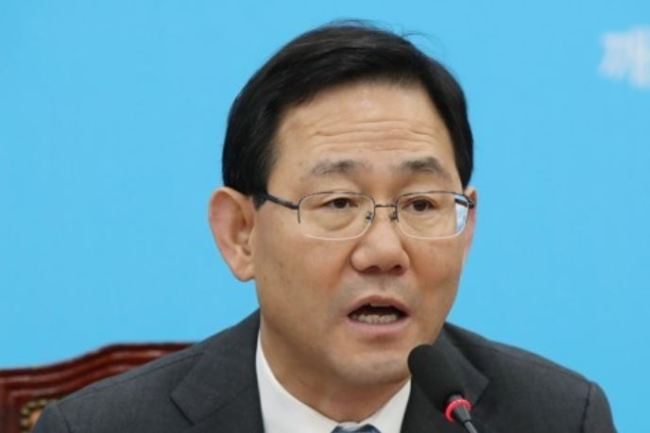A widening fissure within the minor conservative Bareun Party is raising the prospects of a major political realignment, with right-wingers struggling to bring the party into their orbit and liberals eyeing an alliance.
Amid the main opposition Liberty Korea Party's push for a "grand right-wing unity," the minor party has been split over whether to join forces or stay away and push for its founding principle -- revamping conservative politics.
Tapping into the Bareun Party's ambivalence, the center-left People's Party has been seeking a possible tie-up with the divided party to further cement its legislative foothold.
The LKP's drive for a merger with the Bareun Party has gathered steam as it seeks to sever ties with corruption-tainted former President Park Geun-hye. Reformist members of the minor party have demanded the removal of Park and her allies from the LKP as a precondition for any talks on a merger.
The Bareun Party splintered off from the LKP late last year amid a factional feud involving Park.
The main opposition party plans to convene its ethics committee Friday to determine whether it would accept its reform panel's recommendation to ask Park and two of her allies to voluntarily leave the party.
The LKP has been chomping at the bit to unite the fractured conservative bloc, as its liberal rivals are pushing for investigations into alleged misdeeds involving former conservative governments. The LKP has framed the probes as "political retribution."
The LKP's courtship towards the splinter party has faced resistance.
 | Rep. Joo Ho-young, the floor leader of the minor opposition People`s Party speaks during a meeting with senior officials at the National Assembly in Seoul on Oct. 19, 2017. (Yonhap)
Some Bareun Party members argue that the party should "go it alone" to keep intact its much-trumpeted platform to create "warm, transparent" conservatism in a break from the old, tainted one. They insist their party should elect a new leader at a party congress slated for Nov. 13 to make a fresh start, while the LKP wants a merger before the leadership vote.
Reflecting their repugnance for the LKP, the go-it-alone members of the party have started to discuss a possible tie-up with the People's Party.
The discussions came as some party lawmakers have reportedly warmed to the idea of defecting to the LKP. Any defection would make the minor party lose its status as a parliamentary negotiating bloc that requires at least 20 lawmakers.
On Wednesday, Joo Ho-young, the Bareun Party's whip, met Kim Dong-cheol, the floor leader of the People's Party, to discuss a potential alliance, which could spur the emerging move to regroup middle-of-the-road politicians.
"The Bareun Party and People's Party have much in common in terms of policy and ideology, given that we believe that the middle-of-the-road forces should lead the country," Joo said during a meeting with senior party officials.
Talk of cooperation surged after a recent survey by the People's Party's think tank showed that should they merge, their support rating would jump to nearly 20 percent, higher than the LKP. Their ratings have been boxed in the woeful single digits.
The People's Party plans to hold a general meeting of its lawmakers early next month for in-depth discussions on the merger issue.
The integration talk unnerved the LKP as its project to merge with the Bareun Party could be derailed.
"(The Bareun and People's parties) have different identities and roots," LKP floor leader Chung Woo-taik told reporters, apparently seeking to curb the integration move.
The ruling Democratic Party has also been seen seeking to ally with the People's Party, amid growing fears that a merger between the LKP and Bareun Party could undercut liberals' legislative stature.
Reports have said that ruling party grandees recently approached a senior member of the People's Party to discuss the possibility of forging some form of coalition. But Ahn Cheol-soo, the minor party's leader, brushed aside the possibility.
The People's Party is split, with many concerned that any coalition with the ruling party would mean a loss of its identity as an opposition party -- or a liberal alternative -- and "absorption" into the larger party.
Observers said that the talk of a political realignment would further accelerate as each party seeks to bolster its political profile ahead of next year's gubernatorial and mayoral elections seen as a referendum on President Moon Jae-in's first year in office. (Yonhap)
(作者:汽车电瓶)

